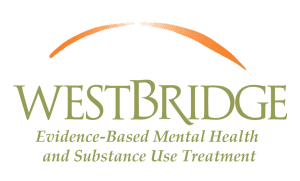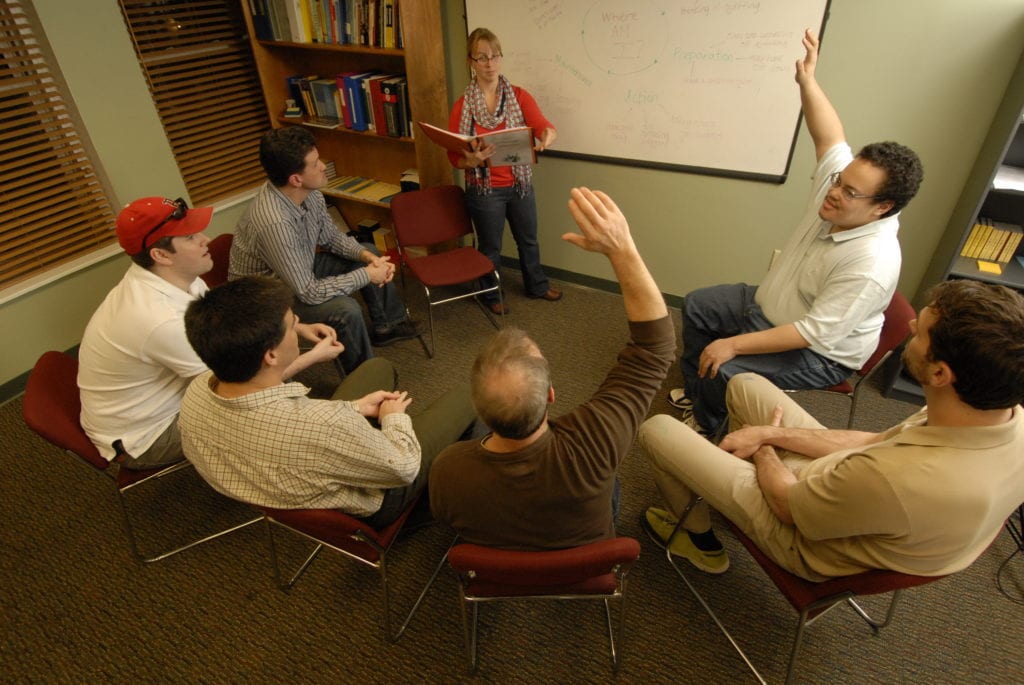How do I choose a Residential Treatment Program for Mental Health and Substance Use Treatment?
• What does it mean to have a dual diagnosis, and how does learning about both conditions help?
• What does my loved one’s schizophrenia or bipolar disorder diagnosis mean?
• Does my loved one need a residential treatment program?
• How long should someone expect to stay in a residential treatment program?
• Can I be involved in my loved one’s mental health and substance use treatment?
• What should I look for in a quality residential treatment program?
• What is an evidence-based residential program and why is it important?|
• What program licensure is important when I am looking for residential treatment?
• Does accreditation matter in selecting a residential treatment program?
• What should I know about residential treatment program staffing?
• Should I choose a non-profit or for-profit residential treatment program?
• What types of residential treatment programs will my insurance cover?
• After residential treatment, then what?
What does it mean to have a dual diagnosis, and why is specialized treatment important?
The terms dual diagnosis, or co-occurring disorders are often used interchangeably in the behavioral health field when referring to someone experiencing a mental health disorder AND a substance use disorder. With this knowledge, and if you or a loved one experience both, it is important to find a program that focuses on both conditions, not a Substance use program that can “handle mental health,” or a Mental health program that can work with someone that has been “sober for a certain amount of days”. WestBridge treats adults experiencing dual diagnosis, or co-occurring disorders, and those with mental health specific needs. We offer specialized treatments that are individualized based on the person’s needs and goals.
What does my loved one’s schizophrenia or bipolar disorder diagnosis mean?
A diagnosis of schizophrenia spectrum disorder means that someone has been experiencing a thought disorder with a certain set of symptoms, such as hearing, seeing, or believing things that others do not, over a certain period. Bipolar disorder is a mood disorder and includes symptoms such as periods of depression alternating with mania (perhaps racing thoughts and intense goal-directed activity). A diagnosis does not define who you are yet reflects an illness that can be treated. While there are a number of residential treatment programs that accept individuals with these diagnoses, not all specialize in working with schizophrenia or bipolar disorder, particularly when combined with substance use. Thought and mood disorders along with some other serious mental illnesses have been a specialty treatment area at WestBridge since our founding in 2001. We help our participants living with these disorders to thrive at work, school, home, and in the community.
Does my loved one need a residential treatment program?
A residential level of care is often recommended after an acute stay in a hospital, or when someone receiving treatment in the community can benefit from additional support. Residential treatment programs should provide assessment, stabilization, assistance with symptom management, therapies and independent living skills. WestBridge provides all of these services in addition to psychiatry with medication evaluation, management and more.
How long should someone expect to stay in a residential treatment program?
There are a variety of definitions for residential treatment based upon a myriad of factors. Some residential programs have a two-week average length of stay; others have average stays of at least 60-90 days or longer for more comprehensive assessments, diagnostic testing, and treatment. Many of the participants at WestBridge have been to multiple short–term, or less specialized programs without sustaining recovery and have benefited from our longer-term treatment. Our evidence-based model and comprehensive staffing ratios are effective for those with mental health disorders with or without substance use disorders.
Can I be involved in my loved one’s mental health and substance use treatment?
This is an important consideration in selecting a program. While many programs provide opportunities for family involvement, frequency and types of contact with families vary. Be sure to ask how often the program will provide you with updates, how they will or will not engage you in their loved one’s treatment, and whether they offer services so that you can learn about how to help your loved one manage their symptoms. At WestBridge, families are also offered services so that they can step out of the role of crisis responder, and back into the role of family member. These services include:
- Weekly Family Education & Support
- Weekly clinical updates
- A family handbook
- One-on-one family peer support with another West Bridge family member
- A secure, online website portal to access a variety of information
- Monthly educational webinars (recorded and available on the portal)
- Family support groups via a secured video platform
- Support in connecting to local community supports such as NAMI and Al-Anon.
What should I look for in a quality residential treatment program?
Many programs share “outcomes” on their websites, literature, or verbally. It is important to understand their methods. Is the data based upon brief satisfaction surveys from patients and families at discharge? Was it verified by an independent entity? Have the outcomes been published in a professional journal? Post discharge surveys do show some information but are not typically research based. Programs that have completed a longer-term study of outcomes post discharge can show the true benefit of their treatment program.
WestBridge utilized staff and independent researchers from Westat and the Dartmouth Institute for Health Policy and Clinical Practice to conduct a study of our outcomes, which is published in an international, peer-reviewed journal. Our study demonstrates that integrated evidence-based treatment can be effective for men with co-occurring disorders. Specifically, men who engaged in services for at least one year benefitted substantially and were in recovery across various domains, including level of functioning, family relationship status, housing stability, educational and employment activities, and mental health and substance use disorder management. These factors are integrated into the WestBridge model of care. Treatment completion and family involvement were key components. Continuity of care between residential and Assertive Community Treatment, (now known as our Community Integration Program), combining multiple research-based interventions, and an intensive family program are unique features that may have contributed to the results in men who had an average of four past inpatient/residential stays, and were on average in their late twenties. View our outcomes here: WestBridge Publications – WestBridge
What is an evidence-based residential program and why is it important?
Evidence-based practice (EBP) in mental health is a buzz phrase that we hear a lot these days. It means that the treatments used have been researched in clinical trials to determine if they are effective. WestBridge uses multiple evidence-based practices to ensure the quality and standard of care is met to allow the best opportunity for individuals to meet their treatment goals. The foundation of our services is based on Integrated Dual Disorder Treatment (IDDT) and stages of Change models. Other evidence-based practices WestBridge implements include Family Education and Support, Cognitive Behavioral Therapy, Motivational Interviewing, Mindfulness, Collaborative Psychopharmacology. Contingency Management and Mutual Support.
What program licensure is important when I am looking for residential treatment?
Residential treatment programs are not required to be licensed in all states. Although not required by law, obtaining licensure ensures that the facility is providing a certain baseline quality of services to clients in a safe environment. Licensure also helps to ensure the privacy and confidentiality of patients through oversight and collaboration with the treatment program. If your state licenses programs, the licensing agency website may have helpful links to ascertain whether the facility is licensed. WestBridge’s residential program is fully licensed in New Hampshire by the Department of Health and Human Services (DHHS) to provide both Mental Health and Substance Use Disorder Treatment.
Does program accreditation matter in a residential treatment program?
The Joint Commission on Accreditation of Healthcare Organizations (JCAHO) or CARF (Commission on Accreditation of Rehabilitation Facilities) are two of the most rigorous accreditations a health care organization can obtain. Obtaining the JCAHO or CARF gold seal of approval can be another indicator of excellence, quality, and safety in providing health care services. Since 2010 WestBridge’s residential treatment program located in New Hampshire has repeatedly received the maximum three-year Accreditation by CARF, demonstrating that it is of the highest quality, measurable, and accountable. www.carf.org
What should I know about residential treatment program staffing?
Understanding the expectations that the program holds for staff and the ratios of staff to patients will tell you what type of support is being provided. It is also important that the program run background checks on staff. At a residential program, you want to make sure that direct care staffing is provided 24 hours a day and that medical staff (MD, RN, etc.) are available on a full-time basis as well, as with diagnoses that are more complex, comes the need for more support. WestBridge’s medical team includes a full-time medical director and additional psychiatric and nursing staff with various specialties. WestBridge also has therapists, counseling and case management staff as well as awake overnight staff in our residential treatment program.
Should I choose a non-profit or for-profit residential treatment program?
This is a personal decision. Understanding where your fees are going may help you to decide which facility you would like to invest treatment in. Many treatment centers that have opened in recent years are owned by for-profit corporations, some of which are so large that their shares are traded on the stock exchange. Non-profit organizations are established for the benefit of the individuals receiving the services, and with fees established to be able to provide mission-driven services. WestBridge is a family founded private non-profit 501 (c) (3) organization. We exist solely to help participants and families.
What types of residential treatment programs will my insurance cover?
Every insurance plan has its own particulars regarding mental health and substance use
treatment coverage. It will be important to call the number on the back of your insurance card – either customer service or one identified as mental health and substance use specifically. They should be able to review your benefits and give you an idea of potential programs, out of pocket costs and estimated length of stay. You should then make sure to ask about insurance coverage with any program you contact – are they in network (or contracted with the insurance), out of network (you may be reimbursed and have higher deductibles) or private pay only. At WestBridge, most families utilize some combination of insurance and self-pay to cover treatment costs. Our residential treatment program is in-network with multiple commercial insurance plans that may offset the cost of our longer-term treatment. We are also contracted with the Veterans Administration (VA CCN Region I). WestBridge also provides validation and verification of benefits as part of our admissions process to help families plan for financial arrangements.
After residential treatment, then what?
Some families and clients worry about what is next after residential treatment. It is an important question to ask a facility. At WestBridge, we start considering post treatment transitions during the admission process. We look to identify the appropriate supports, within both WestBridge and other communities. For example, a step-down consideration for any residential treatment program participant is to enter into our Community Integration Program, which allows each participant to live independently with the appropriate supports in place, both clinical and non-clinical. The goal of which is for them to find recovery in independent living in a way that is more sustainable than before.







